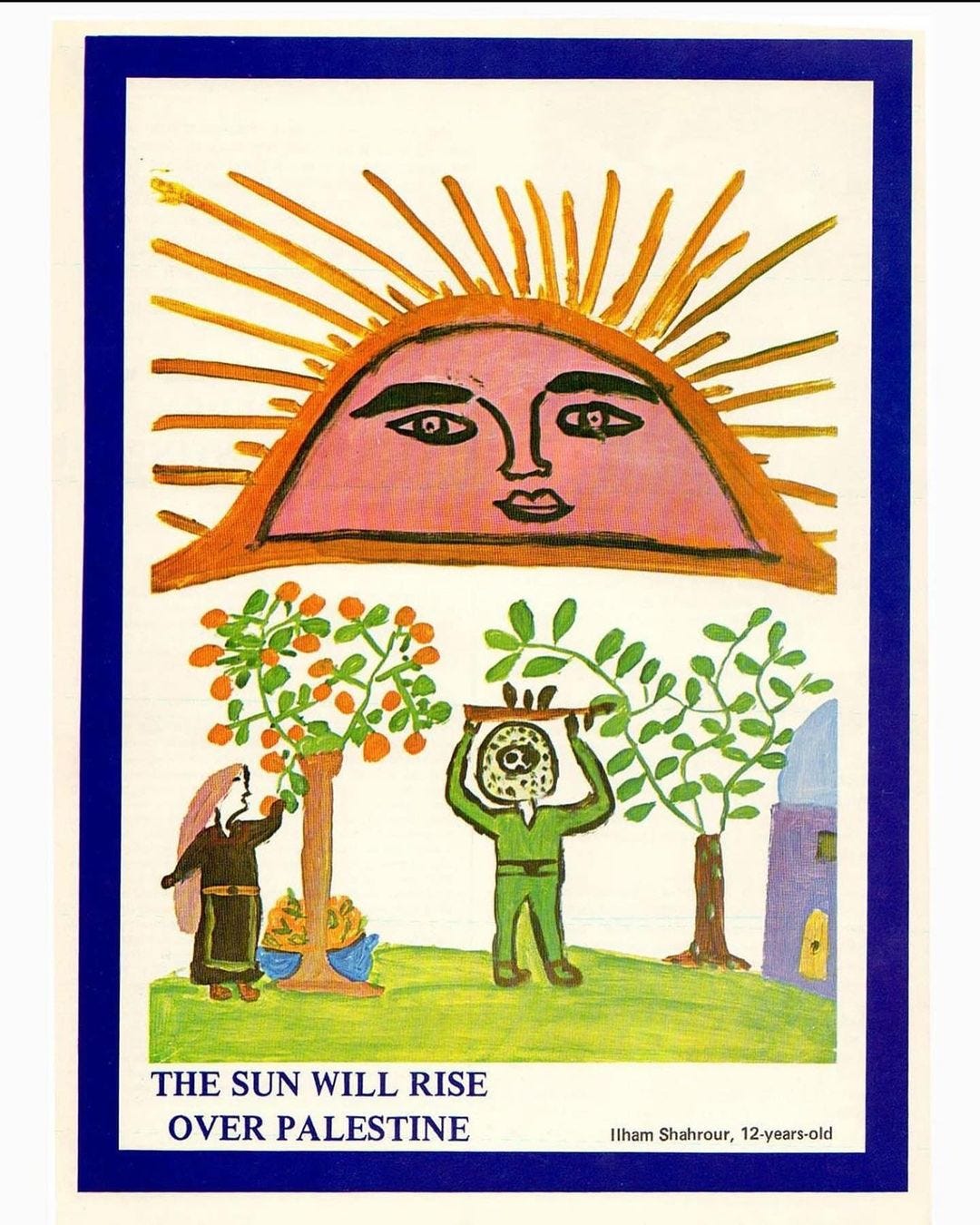Disclaimer: I’m aware that Hamas is considered a terrorist organization in America, and I’m also aware of the Western hypocrisy of designating Hamas as a terrorist organization. This newsletter is an imperfect detailing of how I’m inspired by Palestinian resistance—I am NOT inspired by violence against Jews, and I do not support violence against Jews.
Last Wednesday (July 31st), Hamas’s top political leader, Ismail Haniyeh, was assassinated in Iran. Haniyeh was the person in charge of international relations, including negotiating ceasefire deals, hostage negotiations, and peace talks. Since October, Israel has killed 60 of Haniyeh’s family members, including 3 of his sons and 2 of his grandchildren. When Haniyeh learned about the assassination of his children in Gaza, he responded: “The blood of my children is not more valuable than the blood of the children of the Palestinian people. All martyrs of Palestine are my children.”
Political analysts are agreeing that this assassination is not going to do anything productive but further “radicalize” the Palestinian resistance. I put radicalize in quotes because it is not radical to defend oneself against colonization and genocide. I think about the multiple colonizations my Philippine ancestors endured—brutal occupations that have stripped us of our power, wealth, and indigenous wisdom; as well as the ongoing fight for Taiwanese independence. I wonder if Asian Americans aren’t speaking up about Palestine because it would force us to remember our painful histories, and reconcile with the present reality that colonization is still devastating us today. Waking up to see how strategically and intricately these systems of colonization, white supremacy, and capitalism operate to obliterate our humanity is terrifying—but paradigm shifting.
Haniyeh was seen by regional analysts as a moderate figure within the Islamist movement, acting as a bridge willing to push for mediation with Israel. According to the New York Times*, “Israel’s decades-long targeted killing campaigns against Palestinians have simply created room for more “radical” parties and leaders to replace them.”
The article also reads:
“Perhaps the most important principle for Hamas’s survival, Ms. Mustafa, the analyst, said, is not being overly reliant on material support from its foreign backers—a dependency that allowed Israel to deplete the Palestine Liberation Organization in the 1970s and 1980s, she said.
Hamas militants have their own engineers who know how to make use of whatever they can find on the ground — from supplies looted from Israeli bases or ambushes on Israeli vehicles, or from extracting materials from unexploded ordnance and fallen drones.
'They got a lot of external support in terms of finance and training, but in terms of their logistics, a lot of that is homemade,’ Ms. Mustafa said. ‘Which is why, even now, almost 10 months in, you haven’t seen the resistance wane.’”
Let this sink in: the Palestinian resistance is going strong after 75 years of occupation, 300 days of genocide, and daily airstrikes from the most advanced, highly trained, and well-funded army IN THE WORLD.
Despite decades of obliteration by Israel, Palestinian resistance groups cropped up again and again. Despite the assassination of its top leaders and 300 days of massacre, Hamas is stronger than ever due to its self-sufficiency, “homemade” weapons, and non-reliance on foreign powers. Despite the tragic soul loss of their oppressors, Palestinians are more emboldened than ever because of their deep love and reverence for their land, their people, and their culture.
Let the Palestinian resistance serve as a blueprint for our own resistance against the systems of oppression we are fighting at home—especially because they are one in the same. (Look up “The Deadly Exchange” to learn more about the training & exchange program between Israeli and U.S. police, border patrol, and FBI agents.) The success of the resistance gives me hope that we can resist police brutality, white supremacy, and fascism with the tools we already have, and the new systems of collective care we are creating that are independent from the government and state.
A free Palestine will free us all.
*Note: I believe the New York Times is an unreliable and biased news source, especially concerning the Israeli-Palestinian occupation. Writers Against the War on Gaza is a great resource for learning more about the NYT’s abysmal “reporting.” But I clicked on this NYTimes article on my way to playing Wordle and found it odd that I was inspired by reporting that was presumably supposed to make me fearful…and so, here we are.




